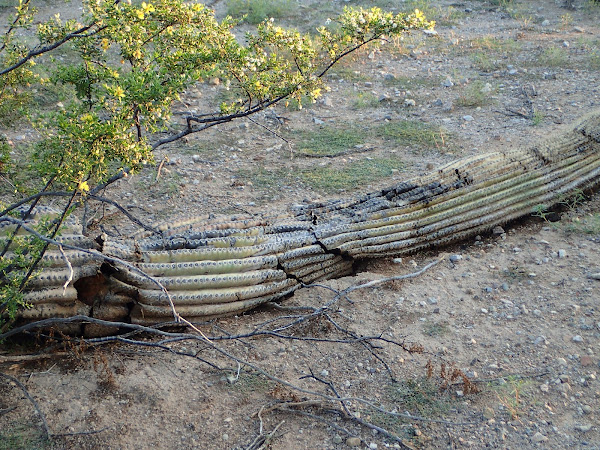Friday, August 20, 2021
Clown or Hister Beetles
In the State Trust Land just beyond our property fence, several old saguaros are not looking healthy and big arms dropped to the ground. While these pieces first seemed to just shrink and mummify, recent rains brought forth a putrid stench of decay and decomposition. Time to look for insects that may use this resource. When I carefully lifted a piece yesterday, a shiny, flat beetle fell free.
It's long protruding mandibles and square shape identified it as Hololepta, a Clown Beetle. Its hefty size, habitat and location speak for subgenus Leionota and species Hololepta yucateca
Hister beetles are found in all imaginable habitats with rich organic resources from beach debris to bird nests. Members of the nominate subgenus Hololepta are found under bark of decaying hardwoods; members of the subgenus Leionota in rotting vegetation incl. cactus, agave, and palms. Hister Beetle larvae and adults do not directly feed on the rotting material. Instead, they are predators, hunting other insects (such as maggots), and other small invertebrates.
Histeridae are among the larger beetle families. 440 spp. in 58 genera occur in our area (North America north of Mexico), ca. 4000 spp. in ~330 genera worldwide. At 20mm (2 of that are the prognath Mandibles) my smooth flatt black beetle is among the largest Histeridae I have seen.
Subscribe to:
Post Comments (Atom)






No comments:
Post a Comment